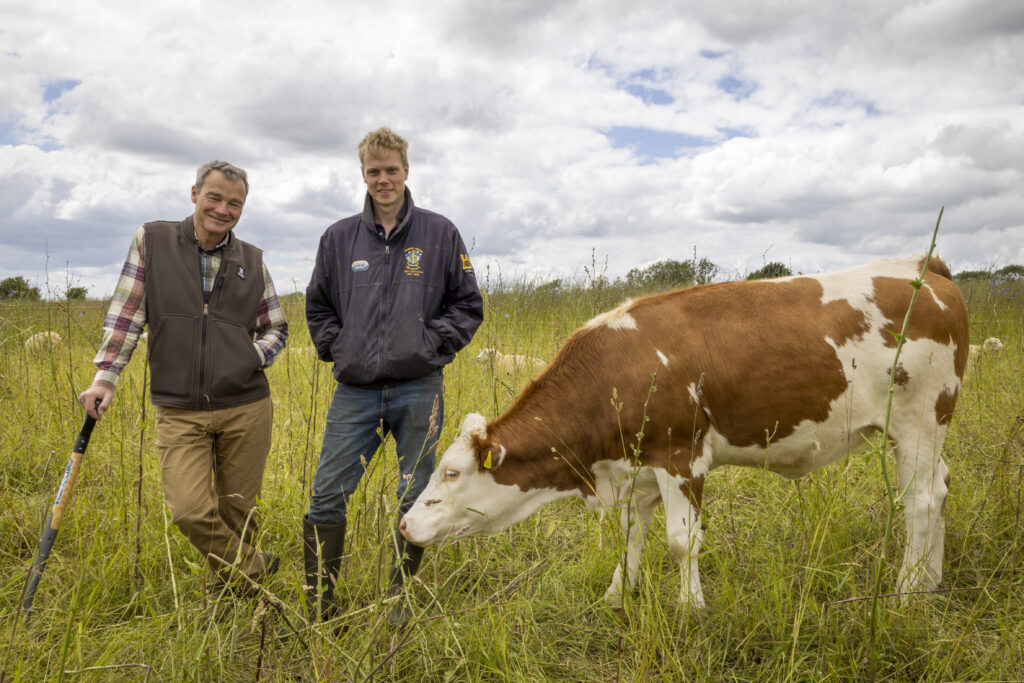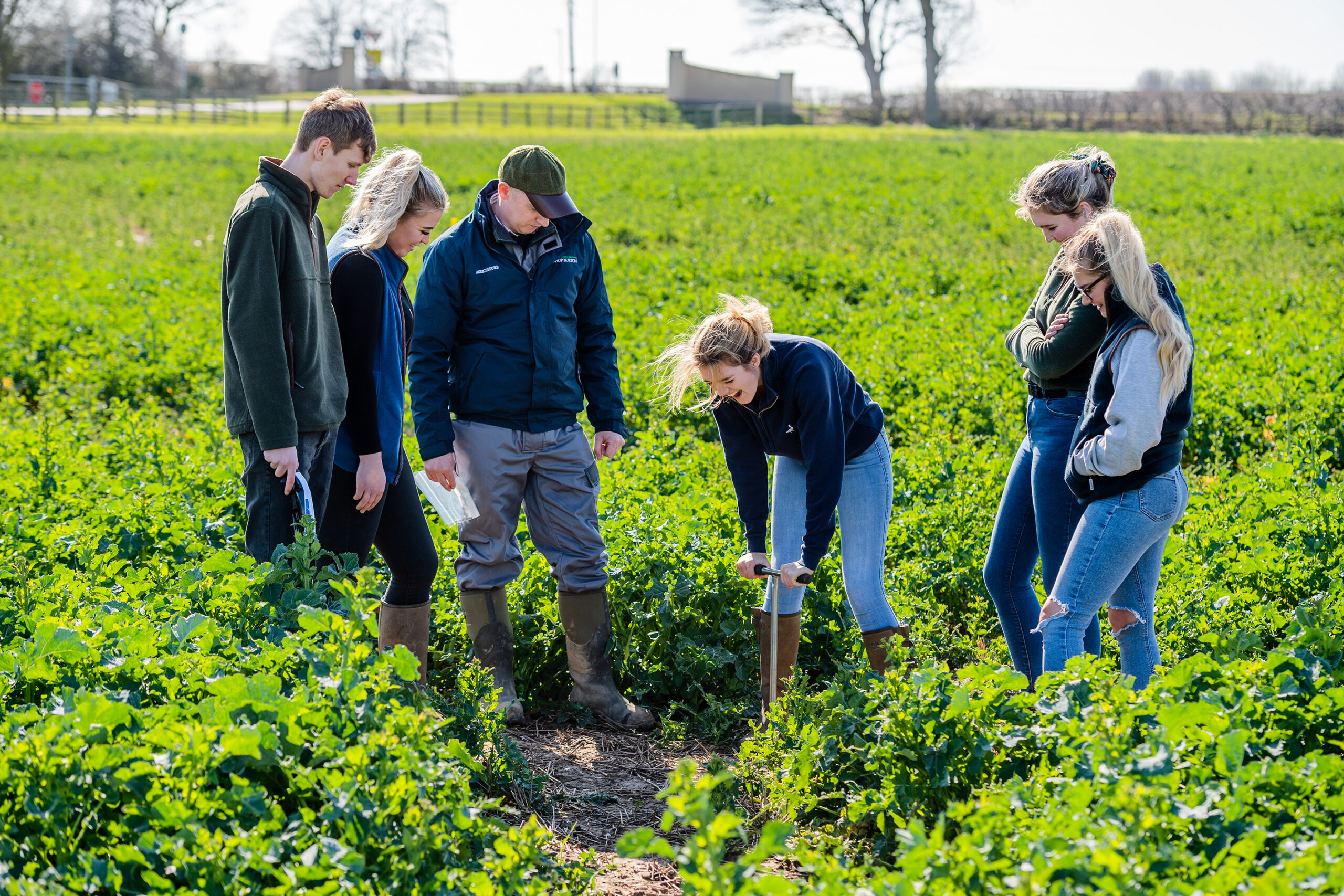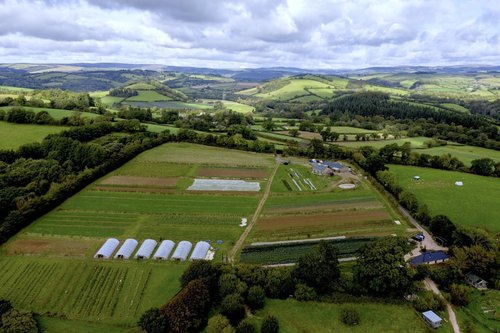Smarter ways of managing land can help us grow food sustainably, boost ecosystem restoration and protect biodiversity. But this will only happen if people have the skills to put regenerative approaches into action.
With the UK government planning huge changes to farm subsidies, there are big opportunities to transform our relationship with the land. Growing public interest in sustainable food can also accelerate progress. But a shift away from extractive processes will need new mindsets, as well as new skills.
Changes to land use could deliver up to 30% of emissions reductions needed for the UK’s 2050 net zero target. Skills trailblazers can make this ambition a reality, while helping people access jobs and opportunities. Four pioneers are highlighted in the shortlist for the 2023 Ashden Award for Future Farmers – supported by Garfield Weston Foundation
FarmED

FarmED is a Cotswolds not-for-profit community interest company showing regenerative agriculture in action, and working to transform attitudes to food and farming.
Visitors to the organistion’s demonstration farm in the Cotswolds have included farmers – more than 10,000 since FarmED launched in 2013 – as well as students (from primary pupils to postgraduate), community groups, the media, and key stakeholders in the food system, such as national and international producers and retailers.
FarmED creates space for knowledge-sharing and networking, encouraging open discussions about trade-offs between biodiversity, carbon, fuel and food. And by documenting practices on a demonstration farm, FarmED build evidence to show the resilience and ecological benefits of progressive approaches.
Black Mountain College

Black Mountains College, based in mid-Wales, trains students in the future land-based skills necessary for a just transition to a low-carbon future. The courses are state-funded, free and unique in England and Wales, with an ethos of purposeful teaching for social change.
Taught outside, in nature, at community settings and in partnership with community organisations, the Black Mountains College Model is a distinctive innovation in content and inclusive delivery. Students learn whilst doing in local gardens and woodlands and undertake projects with social outcomes. Specific courses on offer include NVQs in coppicing and greenwood trades, regenerative horticulture, and nature recovery.
Bishop Burton College

Summary Agriculture courses at Bishop Burton College in East Yorkshire combine cutting-edge technology with climate-friendly techniques. The college is host to the Centre for Precision Agriculture (part of the Yorkshire and Humber Institute of Technology), focusing on technology-based precision farming to transform food production and reduce emissions, pollution, waste and soil erosion.
The college has developed its own commercial mixed farm as a showcase for precision farming – which involves closely monitoring and responding to information about soil types, terrain, weather, plant growth and other factors on a particular patch of land. This cuts the need for fertiliser and pesticides, and reduces carbon emissions. Its work shows how colleges geared towards teaching traditional farming methods can adapt to include regenerative systems and approaches.
The Apricot Centre

The Apricot Centre offers free traineeships and placements, working in partnership with local farms to support skills for regenerative agriculture. The centre is a not-for-profit community interest company based at Huxham’s Cross Farm in Devon. The certified ‘biodynamic’ farm produces arable crops, hosts an extensive mental health and wellbeing service, and offers free accredited courses via its regenerative agriculture training school.
The centre’s training school was established specifically to address the land-based green skills gap. With its variety of courses, it is able to welcome young people starting their career, career changers, and those who’ve been working the sector for years. Training includes paid placements on local farms, so new techniques are being applied in the real world.
